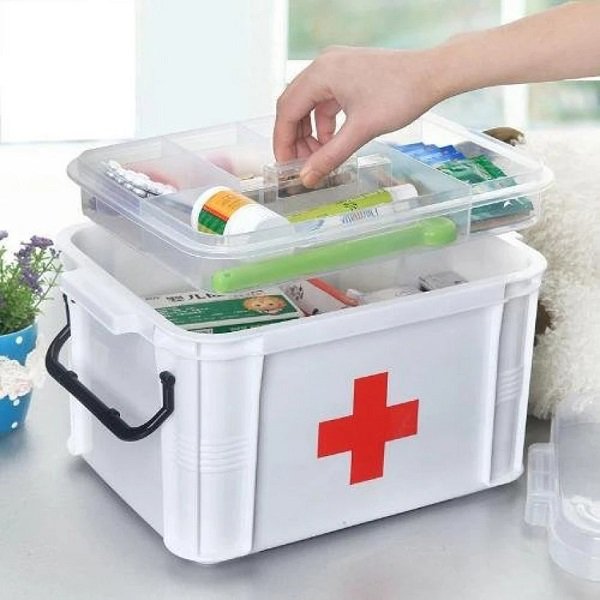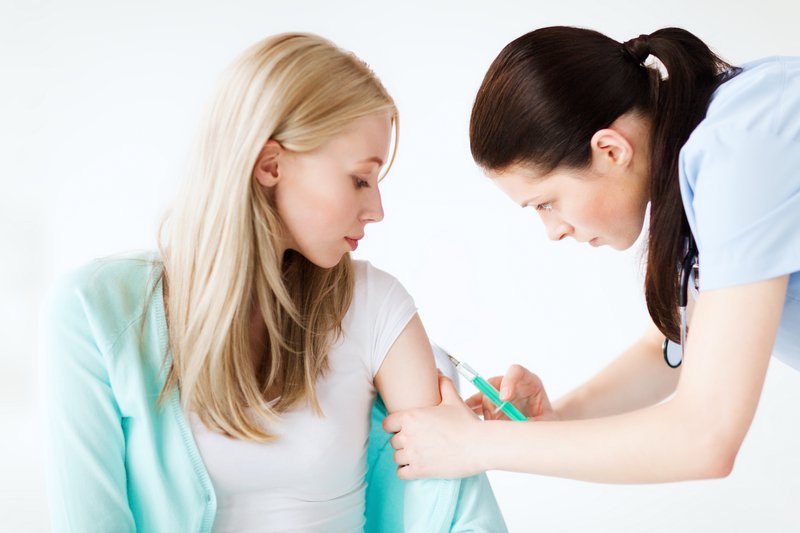Health for travelers - What you need to know
Posted by Doctor, Emergency Medicine Doctor - Emergency Resuscitation Department - Vinmec Phu Quoc International General Hospital
Faced with the complicated situation of the Covid-19 epidemic, if you decide to travel, you need to check your health, and at the same time equip yourself with disease prevention knowledge to minimize the spread of infection. infected.
1. Health check before traveling
Currently, the whole world is "stretching" to minimize the infection and death due to the Covid-19 epidemic. This has a significant impact on the economy as well as the tourism industry. In fact, many tourists have had to miss their trip due to the epidemic. However, if you still decide to make your trip, you need to equip yourself with knowledge of health care and protection.
Accordingly, health care for people traveling at home and abroad can be done in the form of educational consultation. Specifically, visitors will be equipped with knowledge about disease prevention before the trip and end with a post-trip assessment of disease exposures that are not common in the place of residence.
The purpose of the pre-trip examination is as follows:
Counseling and guidance for travelers Assessing the risk of exposure to preventable diseases. Anticipated precautions Risk assessment of the trip: directly related to the type of travel.
Cruises are less susceptible to infection from native people and animals, but are more susceptible to infection from the community of people traveling, such as SARS - Cov-2. Traveling to create a sense of relaxation, however, if combined with this type of adventure, there are many risks. Long-term business trips away from family have many behaviors that pose a risk of infection. The form of tourism following nomadic cultivators, cycling, rafting has many risks of disease transmission. In addition, travelers with a history of diseases such as: asthma, heart disease, stomach ulcers, kidney disease, bladder disease, high blood pressure, diabetes, bronchitis, emphysema, psoriasis , poor immunity needs special attention.
2. Some notes on disease prevention when traveling
Measures to prevent disease when traveling are as follows:
Counseling, education: The role of epidemic prevention measures is to reduce risks, prepare mentally to deal with possible problems. or existing problems that will get worse. Food and drinking water safety Avoid insect bites and sunlight Travelers' diarrhea First aid tools, medicines General safety – traffic problems Prophylaxis against malaria – drug toxicity Disease caused by high altitude – compressed air disease Fresh water exposure – schistosomiasis Sexually transmitted diseases Rabies – Animal bites

Hãy mang dụng cụ sơ cứu khi đi du lịch
3. Some general tips to ensure health when traveling
3.1. Some things to pay attention to to ensure health
When traveling by plane, the safest place is near the exit to the exit. When taking a taxi, you must wear a seatbelt. You must be firm with the taxi driver when it is not safe to drive.
You also pay attention, avoid letting others see valuables or money, should not bring belongings at risk of being stolen. When in a place near a gas stove that has to open the window, the hotel room downstairs is the safest. It is necessary to clearly see that there are exits for fire prevention, anti-malaria drugs, and water disinfectants, to avoid dangerous proximity to children. With the protection of health, it is necessary to pay attention to the following:
Bring medicines still in the blister pack or in the original box to avoid confusion. First aid kit includes 1 abnormal ECG, x-ray, summary of last hospital discharge. Need to know the information about insurance policy, consider buying travel health insurance. Rhinitis must be thoroughly treated before boarding. Never agree to inject when sterility is not guaranteed, need to review the vial before use. Before you go, you need to consult the medical issue of the place you plan to visit, such as a hospital, doctor, pharmacy.
3.2 Food and water safety
Motto: "Eat cooked, drink boiling, peel or forget", boil clean water for at least 3 minutes, bottled water must ensure that the lid is still on, unused chlorine and iodine can be used. To disinfect water, avoid using tap water, ice, unpasteurized milk. In addition, meat and vegetables must be thoroughly cooked and eaten while still hot, avoid cold buffets, spicy dishes and salads, and fruits should be peeled before use.

Hãy ăn thịt, rau khi đã được nấu chín
3.3. Avoid being bitten by insects
Mosquitoes, ticks, and fleas can be avoided by applying an insect repellent containing 30% DEET on open skin. Note that long-term use and high concentrations will be toxic to children. Wear covered clothing in areas where there is a risk of dengue and malaria, or soak and spray clothing, nets, and tents with permethrin to prevent insect stings.
3.4. Equip some necessary medicine
Should be equipped with pain relievers and fever reducers, anti-diarrheal drugs, insect repellents, anti-UV drugs with sun protection factor (SPF) 15 or higher, oral antihistamines, can prepare additional syrup cough, vaginal antifungal cream (female), need to bring medical records and electrocardiogram if there are abnormalities.
3.5. Avoid the use of alcoholic beverages
Due to the time difference, you can familiarize yourself with the time zone in tourist destinations. When arriving in the first days can take 5mg melatonin before bed, morning sunlight as well as breakfast with more protein will be more beneficial. During travel, avoid using substances containing alcohol, foods with a lot of carbohydrates, can take better sleeping pills at night such as zolpidem.

Bạn không nên sử dụng các chất có chứa nồng độ cồn
3.6.Using motion sickness drugs
Motion sickness in adults can use scopolamine skin patch about 8 hours before travel or 50-100mg dimenhydrinate 1 hour before travel and then every 4-6 hours. Otherwise the body can be weakened and cause anticholinergic side effects.
3.7. Avoid using contaminated water
Need to cook food before use, otherwise there is a risk of exposure to parasites.
3.8. Avoid sexually transmitted diseases
Prostitution takes the form of tourism, putting many tourists at risk of sexually transmitted infections (STDs), including HIV. Therefore, you need to consider and be careful to avoid contracting sexually transmitted diseases.
3.9. Get vaccinated before you travel
In some countries where yellow fever, meningococcal disease, and cholera are endemic, travelers should be vaccinated before traveling.
In addition, some diseases should be encouraged to be vaccinated or repeated, especially the elderly or the vaccination status is unclear such as: Tetanus, typhoid, polio, diphtheria, influenza, pneumococcal disease, meningitis encephalitis, hepatitis A, hepatitis B, Japanese encephalitis, rabies, plague.

Trước khi đi du lịch bạn nên tiêm ngừa
3.10. Medicines to prevent malaria
Antimalarial medicine is an indispensable medicine for people who are planning to travel. Accordingly, some anti-malarial drugs should be available as follows:
Mefloquine: The most commonly used anti-malarial drug that acts on chloroquine-resistant and sensitive areas, used once a week before arriving in fever-prone areas. cold 1-2 weeks. The drug may have side effects such as dizziness, digestive disorders, not for children weighing < 5 kg, pregnant women in the first 3 months, patients with a history of mental illness, epilepsy, abnormalities. conduction in the heart. Proguanil (Paludrine): take 2 tablets of 100mg daily, can be used for children > 10 years old, pregnant women or suspected of being pregnant. Halofantrin and artemisinin derivatives: Used to prevent malaria resistant to many other drugs. Some other drugs should be equipped as follows: Doxycycline, chloroquine phosphate, Primaquin phosphate can be selected when there are contraindications to other drugs.
3.10. Traveler's diarrhea
Traveler's diarrhea is a syndrome characterized by twice the frequency of defecation, accompanied by abdominal cramps, nausea, abdominal distension, tenesmus, fever, and malaise. Symptoms come on suddenly, possibly during a trip or after returning home, and may resolve on their own. Loose stools can be more than 5 times a day, lasting 3-4 days, sometimes a whole week, especially sometimes 1->3 months. Prompt treatment can shorten the duration of the illness to a few hours. The most common pathogens are enterotoxin-producing bacteria, Escherichia coli, Shigella, Campylobacter jejuni, Salmonella and Vibrio. The viruses are usually rotavirus, norwalk virus. The main parasites are Giardia lamblia and Entamoeba histolytica. In addition, up to 20-50% of diarrhea cases remain unexplained.
How to prevent disease: Food safety is the best way to prevent disease, in some special cases (Sports events, important meetings, honeymoons) can be used to prevent disease: Bismuth subsalicylate 2v X 4 times/day, doxycylin 100mg daily, trimethroprim/sulphamethoxazol 160/800mg daily, norfloxacine 400mg daily, ciproloxacine 500mg daily.
In case of illness, if there is no fever, no bloody stools, should take 2 loperamide tablets after the first loose bowel movement, then take the usual dose, if diarrhea is still present until the 3rd time take 2 tablets of ciproloxacin or norfloxacin, drink rehydration with Oresol solution, do not use antibiotics, or anti-diarrheal agents for children, stop eating dairy foods, if not improve, go to the nearest medical facility for examination. .
3.11. Pay attention to the fear of heights
When going up to over 3000m above sea level, more than 80% of visitors will have some symptoms of acute mountain sickness, the faster you go up, the more symptoms of the disease will appear, including pulmonary edema and cerebral edema caused by high altitude, because the partial pressure of oxygen in the air decreases, causing hypoxemia. Acute mountain sickness can range from mild to severe, with mild symptoms including headache, nausea, fatigue, severe vomiting, dyspnea at rest, ataxia, mental weakness, or cyanosis. High altitude pulmonary edema may develop after a few days, usually during sleep, with symptoms such as severe dyspnea, cough, rales, low-grade fever, and cyanosis. High altitude cerebral edema may appear several days after mild acute mountain sickness with persistent fatigue, progressive loss of alertness, psychosis, focal neurological signs, and coma. There is no perfect prevention, only prevention by daily climbing <300m, for climbs more than 3000m lasting for more than 12 hours prevent by 250mg Acetazolamide (Diamox) per day starting 24 hours before climb and continue for the first few days at high altitude. A common headache reliever can be brought, acetazolamide can be used for mild mountain sickness or dexamethasone 4 mg every 6 hours for prophylaxis, which is intended for the treatment of severe severe syndromes. tall and heavy. Once dexamethasone is administered, the altitude must be lowered urgently to obtain a higher oxygen concentration.
3.12. Pay attention to some pre-existing medical conditions
Usually travelers have to treat pre-existing illnesses early and aggressively. Mentally prepare and manage situations that are more serious than pre-existing conditions.
Bronchitis/emphysema
For people with chronic obstructive pulmonary disease, it is recommended to do arterial blood gas before flying, because airplanes often fly at an altitude of 2500m, at this altitude healthy people PaO2 reduced to about 60 mmHg, oxygen should be provided to patients before boarding with PaO2 < 70 mmHg or oxygen saturation < 93% during the flight. People with hypercapnia or vital capacity <50% should not fly but change to other means of transportation.
Asthma
Developed areas often have air pollution, so in case of an asthma attack, you should know how to self-medicate with antibiotics and corticosteroids according to your ability.
Heart disease
People with heart attack should be banned from flying for 4-8 weeks. People with cardiovascular disease must be able to walk 100m and climb 12 stairs before it is recommended to travel by plane.
Stomach ulcer / gastric surgery
Patients absolutely do not travel by plane within 10-14 days after abdominal surgery, laparoscopic surgery with CO2 pump should fly after 48 hours to ensure safety. whole. Because reductions in HCl and H2-receptor blockers reduce the stomach's natural resistance to traveler's diarrhea and cholera, consideration should be given to prophylactic or aggressive therapy and expansion of vaccination. - Please for prevention.
Disabled people - Arthritis
Favorable conditions should be foreseen for the elderly and disabled when traveling by plane or other means of transport. Control the potential for aggravation of arthritis.

Khi mắc một số bệnh lý nền có sẵn như bệnh tim cần phải điều trị các bệnh sớm và tích cực
4. Evaluation after the trip
If there is a health problem during the trip, after returning, it is necessary to visit and find exposure factors to conduct screening tests and treatment, to avoid potential disease conditions and spread in the community . The current typical problem is the current SARS - CoV2 epidemic. Therefore, each person needs to raise awareness, prevent and control diseases when returning from epidemic areas or having passed through epidemic areas to ensure maximum limitation of infection for themselves and their families. family and community.
Vinmec International General Hospital is the address for examination, treatment and prevention of diseases. When performing the examination process at Vinmec, customers will be welcomed and used modern facilities and equipment along with perfect medical services under the guidance and advice of experts. Good doctors, well-trained both at home and abroad.
Customers can directly go to Vinmec Health system nationwide to visit or contact the hotline here for support.
Bài viết này được viết cho người đọc tại Sài Gòn, Hà Nội, Hồ Chí Minh, Phú Quốc, Nha Trang, Hạ Long, Hải Phòng, Đà Nẵng.






